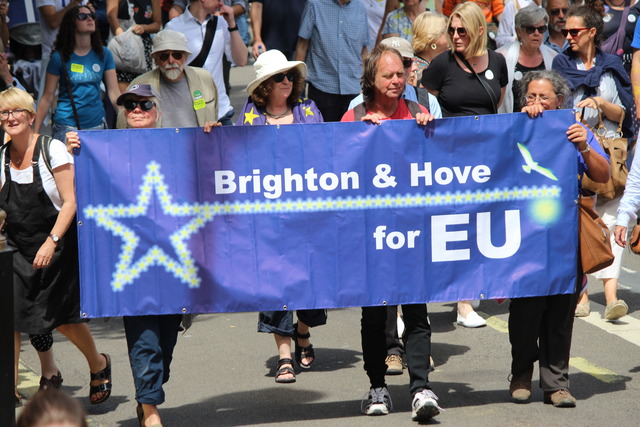Brexit could lead to big cuts in council spending, a threat to the supply of building materials and a shortage of carers, nurses and hospitality staff.
But Brighton and Hove City Council does not appear to have carried out and published a proper assessment of the potential risks, according to Green councillors.
The party’s convenor Phélim Mac Cafferty has submitted a written question about preparations for Brexit – Britain’s exit from the European Union – to a key council committee.
Councillor Mac Cafferty wants any assessment included in a document known as the Strategic Risk Register.
He has asked the council’s Tourism, Development and Culture Committee: “As we are less than 200 days till the official Brexit date, in order that councillors and our communities alike are appraised of the economic risks associated with any deal, or worse, no deal, can we have the risks added on to the corporate Strategic Risks Register?”
He should receive an answer when the committee meets on Thursday (27 September) at 4pm at Hove Town Hall. The meeting is open to the public.
Councillor Mac Cafferty’s question follows comments made by his fellow Green councillor Ollie Sykes at a meeting of the council’s Audit and Standards Committee last week.
Councillor Sykes said that Brexit could have an impact on local government finances and added that plans were in place to deal with social disruption but more Brexit planning was needed.
After the meeting Councillor Sykes said: “The council cannot quite bring itself to talk about Brexit.
“A number of councils nationally have specifically set out the risks. I think we could go a little bit further.
“When you look at our links with Europe, the workforce, hospitality, the health service, there are all sorts of ways these could be impacted by the worse possible outcomes of Brexit.
“They need to be looked at in detail.”
Councillor Sykes said that there could be issues with wood and aggregates coming in to Shoreham Port.
He added: “The biggest impact is likely to be financial. The council finances could face £20 billion of cuts after Brexit.
“This and the impact on social care of a ‘no deal’ Brexit and EU migrant workers becoming persona non grata are the two biggest concerns.”







